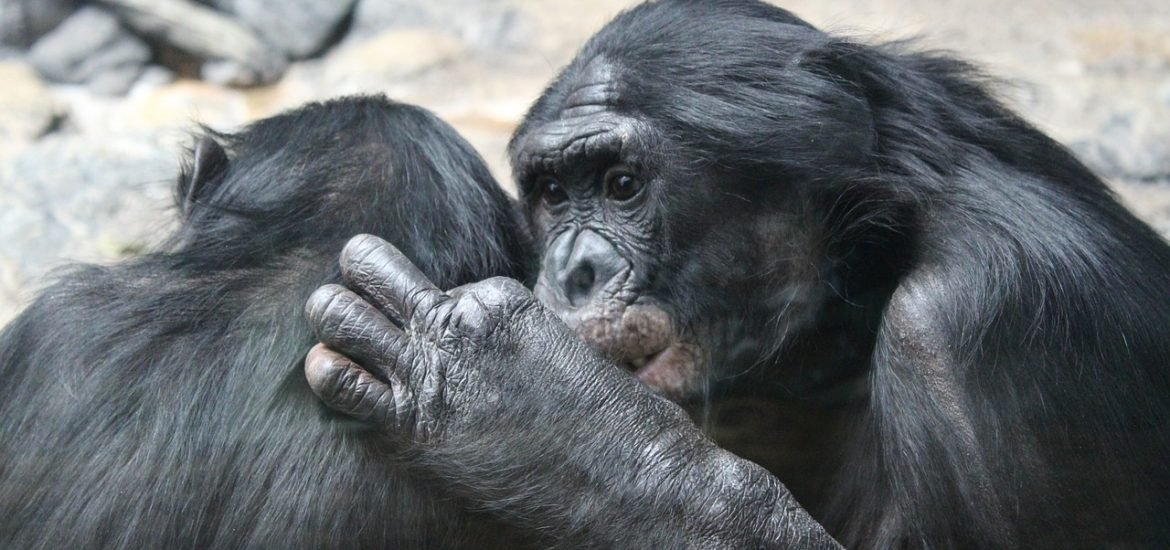
Remembering the order of information is key for humans to learn new information, participate in conversations, and generally plan daily activities. According to a study published in PLoS ONE, a team of researchers from Stockholm University showed that even our closest relatives — such as bonobos — don’t have the same abilities.
“The study contributes another piece of the puzzle to the question of how the mental abilities of humans and other animals differ and why only humans speak languages, plan space travel, and have learned to exploit the earth so efficiently that we now pose a serious threat to countless other life forms,” said Johan Lind, associate professor in ethology and deputy director at the Center for Cultural Evolution, Stockholm University.
Earlier research by the same team showed that only humans can remember sequential information, an essential way to learn new information. Now, they want to know if bonobos, one of humans’ closest relatives, can learn the same way. “We have previously analyzed a large number of studies that suggest that only humans recognize and remember sequential information faithfully. But, even though we analyzed data from a number of mammals and birds, including monkeys, there has been a lack of information from our closest relatives, the other great apes”, said Lind.
For this study, the team tested the memory abilities of bonobos and humans. Participants had to learn short sequences and press the correct order on a screen. This included, for example, pressing right if a yellow square came before a blue square or pressing left if it was the other way around. Bonobos struggled with this task, while humans learned to identify the sequence immediately.
“The study shows that bonobos forget that they have seen a blue square already five to 10 seconds after it has disappeared from the screen and that they have great difficulty learning to distinguish the sequences blue-square-before-yellow-square from yellow-square- before-blue-square, even though they have been trained for thousands of trials”, says Vera Vinken, who studied at Stockholm University.
“We now know that our closest relatives do not share the same sequential mental abilities with humans. But even if the results indicate that their working memory works in principle in the same way as in rats and pigeons, no one has yet demonstrated this in practice”, said Magnus Enquist, professor emeritus and one of the founders of the Center for Cultural Evolution.
These results support the sequence memory-hypothesis, which suggests that at some point during evolution, humans developed an ability to remember and process sequences. This is a unique human characteristic essential for language, planning ability, and sequential thinking.
Lind J, Vinken V, Jonsson M, Ghirlanda S, Enquist M. A test of memory for stimulus sequences in great apes. PLoS One. 2023 Sep 6;18(9):e0290546. doi: 10.1371/journal.pone.0290546.